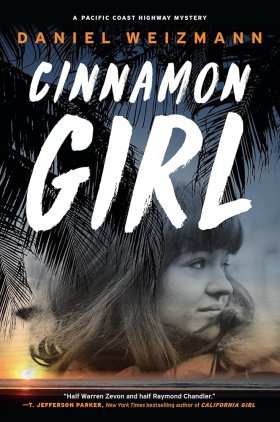“But your son said—”
“I don’t give a rat’s ass what that hysteric said.”
“But this is the one you were asking about, isn’t it? He’s been lurking around the warehouse.”
“All right, all right,” Dr. Bahari said, “cut the opera. Send them packing. And don’t bug me for the next three hours. Capisce?”
He said, “Yes, Doctor,” sounding relieved.
Then Dr. Bahari said, “Goodnight, Marco.”
As Marco made himself scarce, the doctor turned to me, shaking his head, embarrassed.
“Idiots,” he grumbled. “And the irony is I’ve been hoping you would pay me a visit…Adam—may I call you Adam?”
I nodded, watching Marco disappear, still wary. “How do you know my name?”
“Stanley and Roger,” he said matter-of-factly. “Come, let’s have a drink, you and me. We’ll talk like civilized human beings, not gun-toting mishugenas.” With a pointing wave of his cane, he turned and I followed, but at the pond, he stopped to cast a smile my way.
“My fish,” he explained, gazing down upon his orange-white koi with sleepy-eyed intensity. “Good evening, my little soul-mates. Daddy loves you.”
 33
33
There are people whose raw Zen state will disarm you quickly, and Dr. Bahari was certainly one of those, but as he picked up the polished Brazos cane and led me out across the property, breathing heavy, thudding on the night-gray of tennis court, I had to warn myself that a demeanor is not a soul and the Zen state is not the itemized bill. We came to a wine cave door—he knocked on the wood with his cane and said, “Anybody home?” but it was just for show—then reached into his bathrobe pocket and pulled out a key. “Pretty sure what you want’s in here.”
He opened the giant doors, got into the vestibule, and flicked on a light. In we went—down a short flight of stairs to a long, narrow cellar cave, dark with cold, wet brick walls, a giant King Arthur table, a bottle of Courvoisier the size of a basketball, and an ornate tin tray on which lay a neat pile of too-perfect joints.
Bahari hugged himself. “Brrr, too cold. I prefer a sauna.” He grabbed two gold-laced goblets, stood at a barrel and turned the spigot—red poured. “Sit down, Adam, and tell me what’s what.”
I sat but I kept my eyes on him—as if that might stave off his powers to hypnotize.
“I’m here to learn about The Daily Telegraph.”
“Here’s a guy that gets right to the point. Comes waltzing in at gunpoint and first words out of his mouth, ‘Gimme the skinny.’ I like that too.” He brought our drinks over and sat. “So, what’s your connection? Tell me why you care.”
“The guitarist Emil was…a family friend,” I said cautiously. “His father is getting up there and he asked me to try to find out what really happened—he’s…he doesn’t have much time.”
“What happened, as in…”
“Emil’s father has strong reason to believe his son was framed.”
I stared Bahari down. When he said nothing, I went on, counting fingers.
“No discernible motive, witnesses who were definitely with him the night of, best buds, no history of violence—it doesn’t add up.”
Bahari nodded knowingly, lifted his glass in a gentle toast and we drank. I didn’t know good wine from bad, but this one went down easy as a parachute—nothing like the $4.99-ers I copped at Trader Joe’s. Still, all this luxus wasn’t making me trust him any more than I already didn’t.
After swilling his creation, Bahari said, “And so…you came to me. Makes sense. Did you hear the demo we made?”
“I did.”
“Not bad, right?”
“Quite a transformation.”
Bahari drank again and said, “I’m glad you came. I don’t have much of a memory these days—but I remember watching them record those songs like it was yesterday. It was a very exciting time for me.”
“You remember where you saw them last?”
“As a group? I couldn’t pin it down—maybe making the video? Emil I saw in prison, two days before he died. I went to visit, to try to help. Then—heartbreak.”
I drank again and Bahari did too, studying the brick wall. From out of the blue, he said, “Nothing I tell you tonight could explain how it made me feel, what happened to him.”
“Yeah?”
“Yes, Adam. To this day I think of Emil Elkaim as the son I wished I’d had. Privately, of course.”
“But…you had a beef—with Durazo.”
Bahari frowned. “Who said that? I never even met the boy.”
“You didn’t?”
“Not even once—they’d already kicked him out. I worked with Devon the piano player, Geoffrey Grunes. And Emil—he was the big talent. We were two soldiers, he and I, we understood each other.”
Bahari tasted a bigger sip and his wistfulness morphed into a kind of conviction—he pointed at me. “And I agree with his father. One hundred percent. I know Emil could not have killed…anybody. Not. A. Chance. And he didn’t belong in that jail.”
“You went to see him.”

























